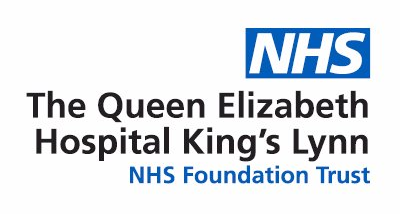Glaucoma service
Ophthalmology
Glaucoma is todayís most common cause of preventable blindness in the UK and mainly affects people over the age of 40, those with diabetes or who are short-sighted and people of African-Caribbean origin.
Our Glaucoma Service is based in the Ophthalmology Department (Eye Outpatient Department) at the Queen Elizabeth Hospital in Kingís Lynn.
Mr Byard specialises in the treatment of glaucoma, supported by Ophthalmologists and Specialist Nurses. This team can provide you with comprehensive, expert care if you are suspected of being at risk of developing problems with your eyesight due to the onset of this potentially blinding condition.
Our specialist clinics
Our eye specialists offer a full range of specialist clinics, including:
- Consultant Glaucoma Clinic/Evening Clinic - Led by Mr Byard
- Stable Glaucoma Clinic - Led by Staff Ophthalmologists and Specialist Nurses for ocular hypertensives and stable glaucoma patients
Our specialist team
The team delivering this service are:
- Mr S Byard - Lead Clinician
- Mr B Baskar - Associate Specialist
- Karen Ratcliff - Senior Opthalmology Sister
- Sue Tabor - Specialist Nurse
- Joanne Hardy - Specialist Nurse
You can contact Mr Byard's secretary by telephoning 01553 613993 or email Ophthalmology.Sec@qehkl.nhs.uk
Further glaucoma information
Glaucoma is an eye condition where the optic nerve (which connects the eye to the brain) becomes damaged. Itís usually caused by fluid building up in the front part of the eye which causes the pressure inside the eye to increase, resulting in damage to the optic nerve. As the nerve becomes affected, the vision may start to deteriorate.
This is a gradual process which if undetected may go unnoticed by the patient until a considerable amount of sight has been lost. Glaucoma generally affects the vision around the edges (peripheral vision) and any sight lost as a result of glaucoma damage is usually, unfortunately irreversible.
Early signs of potential glaucoma changes may be identified by seeing an Optometrist regularly. If there are any of these signs, a referral to the Hospital may be generated for further diagnosis and management.
Treatments for glaucoma may include the instillation of eye drops, laser procedures and/or surgical intervention. Regular monitoring of glaucoma is essential and is offered within our QEH and North Cambridgeshire Hospital, Wisbech Outpatient areas to manage any progression of the condition.
Useful documents links
The documents here may be of interest to you:
- Diabetic eye disease information sheet
- Glaucoma information sheet
- Understanding eye conditions related to diabetes
- Understanding glaucoma
Go to the Ophthalmology overview page.

